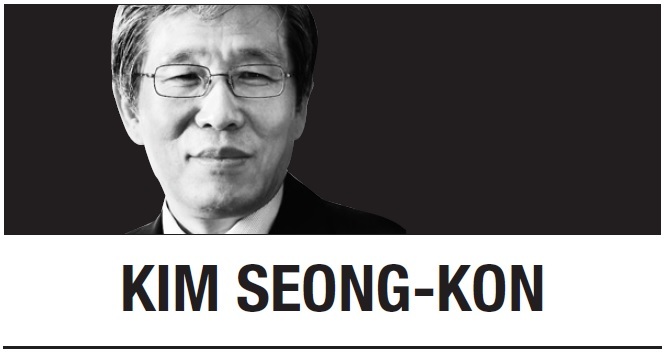
When I was president of the Literature Translation Institute of Korea, I once held a workshop on cultural differences so my staff could learn and discuss foreign cultures. At that time, I felt it was imperative that my staff was thoroughly informed of cultural differences because of an incident that had embarrassed us.
A Korean institution that had donated hundreds of Korean-language textbooks to India discovered that those books were just piled in a warehouse, never having been used. Among the donated books was a dialogue between two people on purchasing beef in the market to make “bulgogi.” In Hinduism, cows are sacred, so it is a taboo to eat beef. Obviously, the Korean donors were either unaware of this significant cultural difference or had simply not been considerate enough.
Apart from this example, another taboo we Koreans should always be aware of is that many cultures consider it unfriendly or awkward to ask about another person’s income, age or marital status. Interestingly, these kinds of personal questions are not so offensive in Korean culture, perhaps because Korea is a very group-oriented society that values sharing many things.
In fact, every country has its own taboos. For example, when you visit Germany, you should refrain from referring to the Nazis or Hitler. In the United States, it is a taboo to exhibit prejudice against race, religion or gender. These days, it is also a taboo in America to harbor a biased view of someone’s sexual orientation, including LGBTQ people.
At the workshop, my staff members who were experts on foreign countries presented intriguing cultural differences and taboos, which was important to know for the sake of business and diplomacy.
In China, for example, the presenter said you might want to refrain from selecting handkerchiefs, umbrellas, clocks or white flowers as a gift because they symbolize parting or death in Chinese culture. The presenter also told us that in China, the “gwansi,” or relationship, is very important in doing business.
The presenter on Japan told us, “When you go to Japan, you should be very cautious not to bother or impose on others.” In Korea, however, it is usually all right to ask a favor since it signifies “jeong,” or affection between people.
In fact, Koreans do not attach a stigma to being a burden to others unless it is very serious. In Japan, you also do not make promises you cannot keep, otherwise you will lose credibility permanently.
Another interesting thing is that whereas the Korean people can repair a damaged friendship over a few drinks at a bar, it is not possible in Japan. A Japanese intellectual once told me, “To build trust and respect takes at least 20 years. When to lose it all, only seven seconds.” Thus, Korean businesspersons and politicians should always keep this in mind when they deal with Japan.
Another presenter, who was in charge of Russia, advised us that we should respect the Russian people’s pride in their rich literary and cultural heritage. Russians are still very much proud of Pushkin, Tolstoy and Dostoevsky, not to mention Tchaikovsky and the Bolshoi Ballet. According to the presenter, you can also do business with Russians without drinking vodka. Maintaining a good friendship with them is more important.
The presenter on America informed us of the following: In American culture, making an appointment is a prerequisite to meeting a person. Setting up a date and time also takes a while. Without a prior arrangement, therefore, you cannot meet someone in America. Therefore, whenever there is an issue between Korea and America, and our National Assembly representatives abruptly rush to Washington, we cannot but doubt if they have an appointment with American politicians of concern. If not, they may not be able to meet anyone important. He also emphasized that in American culture eye contact is important when you speak with someone.
According to the presenter on France, French customs, too, are radically different from Korean customs. In France, for instance, you do not lift your glass when someone pours wine for you; you just lightly touch the base of the glass. German customs are also quite different from Korean customs. In Germany, you cannot force the other party to drink more if he or she declines. In addition, you are not supposed to pour beer or wine into the other party’s glass because it means you are treating the person as if he or she were incompetent.
The presenter on Spain said, “Perhaps due to the warm Mediterranean weather, the Spanish people may be slow in tempo in the eyes of Koreans. Nevertheless, Koreans may feel very comfortable in Spain due to the famous Spanish ‘jeong’ that is so warm and thoughtful, extended even to foreigners.”
We should always bear in mind cultural differences and taboos when we meet foreigners. Then, we will succeed in both business and diplomacy.
Kim Seong-kon
Kim Seong-kon is a professor emeritus of English at Seoul National University and a visiting scholar at Dartmouth College. The views expressed here are his own. -- Ed.






![[Exclusive] Hyundai Mobis eyes closer ties with BYD](http://res.heraldm.com/phpwas/restmb_idxmake.php?idx=644&simg=/content/image/2024/11/25/20241125050044_0.jpg)
![[Herald Review] 'Gangnam B-Side' combines social realism with masterful suspense, performance](http://res.heraldm.com/phpwas/restmb_idxmake.php?idx=644&simg=/content/image/2024/11/25/20241125050072_0.jpg)
